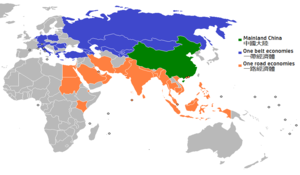Systemic Shift and the Middle East

“Systemic Shift and the Middle East”
Speaker: Ehteshami, A. (Durham University)
Date: 25 April 2019
Speaker Session Preview
SMA hosted a speaker session presented by Dr. Anoush Ehteshami (Durham University) as a part of its Future of Global Competition & Conflict Speaker Series. To begin, Dr. Ehteshami stated that the Middle East seems to sit at the center of global changes and exists as a catalyst for these changes. He explained that there are three critical drivers of this “systemic shift”: 1) financial integration and an increase in trade, 2) the fact that globalization should actually be called “Asianization,” and 3) the eastward movement of the global economy. In Asia, this systemic shift is being deepened by urbanization, a thirst for economic development, transportation, and manufacturing, all of which are fueled by the need for energy and hydrocarbons. Furthermore, Asia is currently witnessing a “golden moment of change” during which the Middle East can continue to export their raw materials to the West, which is desperately in need of their energy exports, but also continue its positive relationship with Asia. Dr. Ehteshami then stated that there are four critical actors in the Middle East: China, the US, Russia, and India. Russia’s military strategy is driven by its regional partnerships and uses energy to secure its position internationally (though this means it directly competes with the Middle East). India looks at the Persian Gulf in particular as an opportunity to grow its market presence, particularly in finance and its high-tech industry. China, Dr. Ehteshami argued, is the country to watch in the region. China has developed agreements as a part of its Belt and Road Initiative (BRI) with thirteen Arab nations and is extending its presence in the Arabian Sea, creating energy investments, providing software, and is becoming more militarily ambitious. All while US is perceived to be on the decline in the region, he stated. To conclude, Dr. Ehteshami highlighted the key difference between the US and Chinese presence in the Middle East: the US enjoys a soft power presence, while China remains hesitant about commitments beyond its borders. Furthermore, China’s “sovereignty max” prevents it from having the capacity to engage with the region much.
Comments